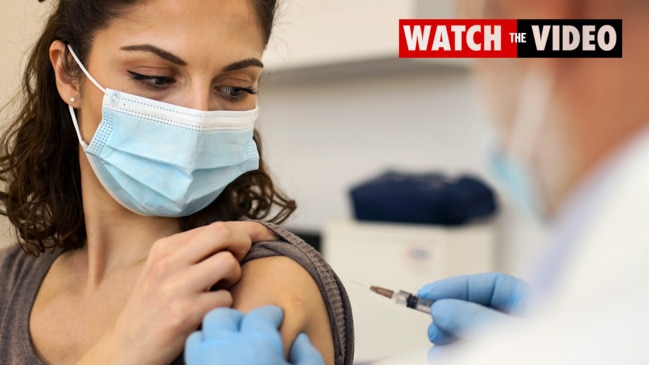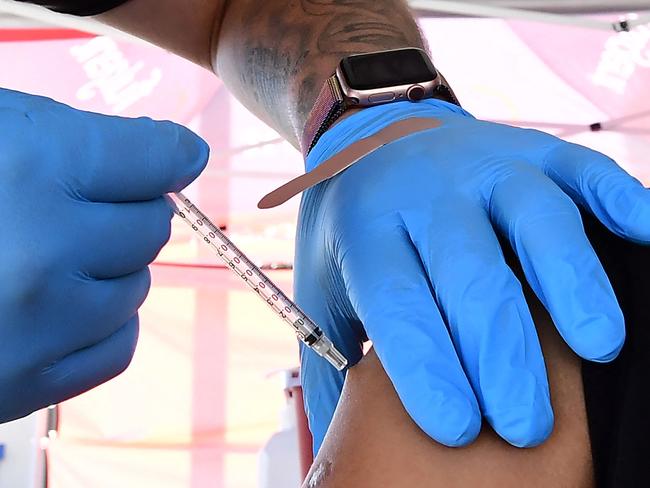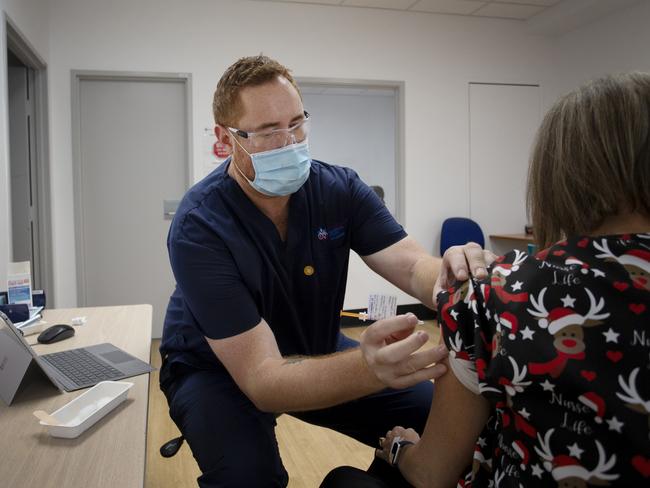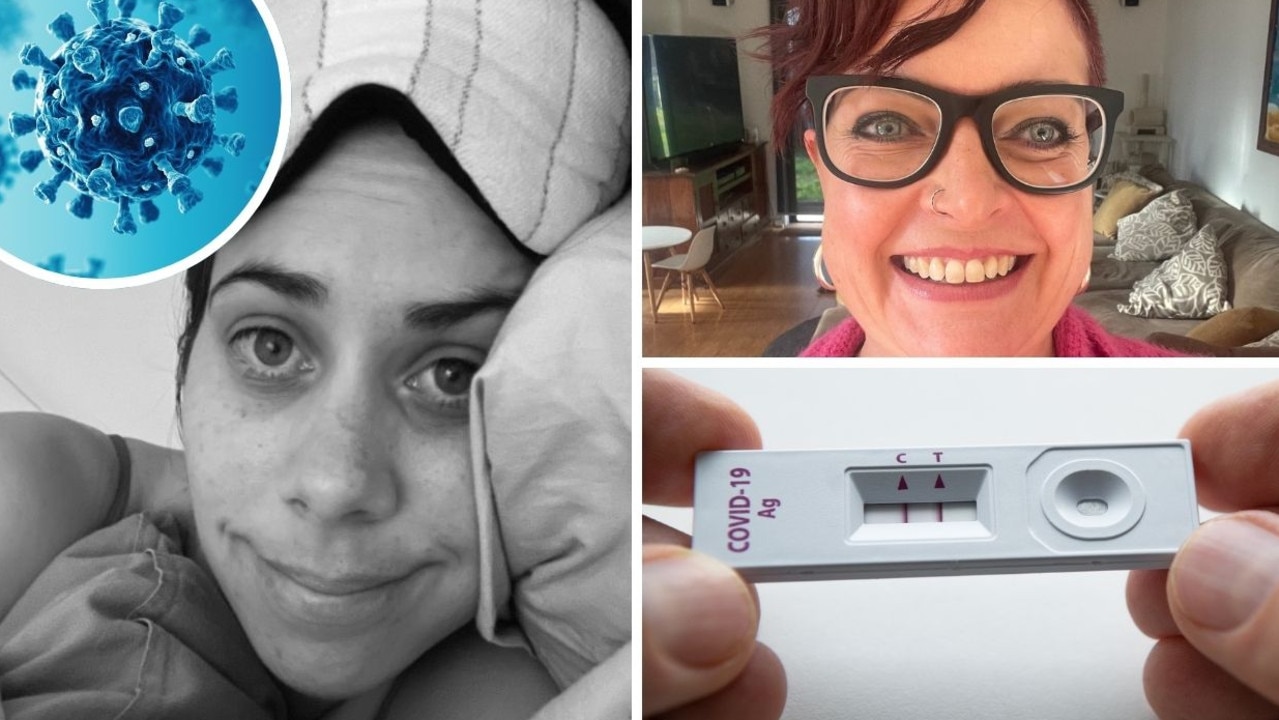What you need to know about booster shots if you have had Covid-19
As Covid-19 booster shot wait times are slashed, thousands infected with the virus are unsure about when to get theirs. Here’s what you need to know.

Coronavirus
Don't miss out on the headlines from Coronavirus. Followed categories will be added to My News.
With Australia’s vaccine booster program well underway, more than five million Australians are now triple jabbed.
The interval between the second and third vaccination doses was slashed from five to four months on January 4, and then to three months on January 31, based on the Australian Technical Advisory Group’s (ATAGI) advice.
NSW, Victoria, South Australia and the ACT have brought third doses forward to three months.
In other parts of the country, the booster interval will be shortened to three months from the end of January.
Here’s what you need to know about getting your third jab:
WHEN CAN I GET MY BOOSTER?
Booster vaccines are available to everyone aged 18 years and over who received their primary course of Covid-19 vaccines — dose one and two —at least three or four months ago (depending on your state or territory).
This includes pregnant women and severely immunocompromised people who received a third Covid-19 vaccine as part of their primary course.
While booster doses are, in most cases, not mandatory, they are recommended to maintain immunity against Covid-19.
WHY ARE BOOSTERS RECOMMENDED?
Because immunity against infection and mild illness appears to wane fairly quickly, and because new variants may require a higher level of antibody (which occurs after boosting) to render them harmless.
“A booster dose will make sure the protection from the first two doses is even stronger and longer-lasting, and should help prevent spread of the virus,” the Australian Government said.
A recent study from Israel showed that participants aged 50+ years who received a booster at least five months after a second dose of Pfizer had 90 per cent lower mortality due to Covid-19 than participants who did not receive a booster.

HOW LONG AFTER HAVING COVID CAN I GET A BOOSTER?
Nearly one-and-a-half million Australians have been infected with Covid-19, with the majority of cases catching the virus before their booster shot.
Currently, there is no official requirement to delay a booster shot after having Covid-19.
However, the recommendation from the vaccination advisory body ATAGI is that you wait until any acute symptoms of your illness are gone, which includes symptoms like a fever or runny nose.
HOW DO I UPDATE MY VACCINATION CERTIFICATE AFTER GETTING A BOOSTER?
If you’ve had a booster dose, you can choose to update your Covid-19 digital certificate.
After you update it, your digital certificate will show all your Covid-19 vaccinations, including your booster dose.
The ‘valid from’ date on your digital certificate will be the date you got your last primary dose.
WHAT BOOSTER SHOULD I GET?
In Australia, both Pfizer and Moderna Covid-19 vaccines are recommended as booster shots, regardless of which vaccine you had for your first two doses.
And while you can also opt for the AstraZeneca vaccine if you can‘t have an mRNA vaccine, or previously had AstraZeneca — it is generally not preferred.
Some research suggests “mixing and matching” vaccines — getting a booster that’s different to your first and second doses — could give your immune system a bigger boost.

IS MODERNA OR PFIZER BETTER?
Moderna has emerged as the best performing Covid vaccine in a second new study which compared it to the Pfizer jab.
Fewer people who were doubled dosed with Moderna’s vaccine contracted the virus compared to those vaccinated with Pfizer, according to research out of Qatar.
Researchers studied 200,000 people who received the Moderna jab with the same number of Pfizer recipients to track Covid-19 breakthrough infections.
Among those who received the Moderna jab there were 878 Covid-19 infections, three people were hospitalised with severe Covid-19 but there were no deaths or ICU admissions.
Among those who received the Pfizer jab there were 1262 breakthrough infections, seven hospitalisations, no ICU admissions and one death the study published in the New England Journal of Medicine shows.
A UK study published also found a Moderna booster provided slightly stronger protection than a Pfizer booster.
WHAT ARE THE SIDE EFFECTS
Common and mild side effects similar to those of the first two doses can occur for the booster shot.
This includes pain at the injection site, tiredness, headaches, muscle or joint pain, or fever and chills.
The Federal Government said there is limited evidence of serious side effects “such as myocarditis and pericarditis following a Pfizer and Moderna booster dose”.
More Coverage
Originally published as What you need to know about booster shots if you have had Covid-19





